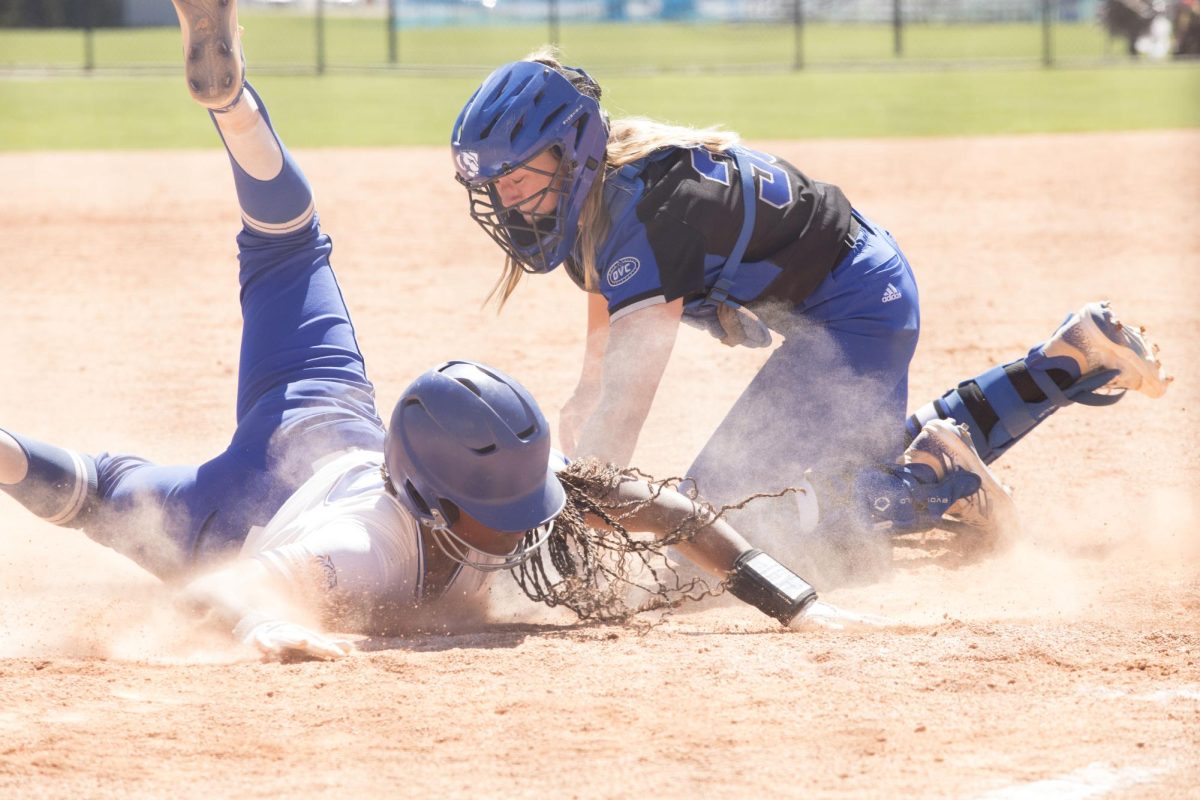Departments put grants to use
The winners of 60 Technology Enhanced and Delivered Education grants totaling $286,184 have definite plans.
“My grant will be used to put together a Web page for the general education course environmental life science,” said Bud Fischer, professor of biological sciences, who received a $3,971 grant to create the Web site.
“The mood of that class is that people mistreat the environment because they don’t know what the full results are, and the Web site will help convey that knowledge,” Fischer said.
“The Web site will offer students streaming video on environmental issues, outlines for notes, pre-quizzes, additional information on class topics, class assignments, links to sites of related interests, and we are also looking at having continual access to course grades for the students,” Fischer said.
Fischer received his grant in the category of technology enhanced course grants, which is one of five categories recipients received grants in.
The grant winners and grant categories were decided by the Technology Enhanced and Delivered Education steering committee, which accepted applications for the grants until Jan. 12.
“The purpose of the grants is to support and provide resources for faculty who want to enhance their courses with technology or deliver a course or program online,” said Robert Augustine, chair of TEDE and dean of the graduate school. “We received both a high quantity of applications and a high quality of applications.”
Twenty-four grants were given out in the professional development grants category in which grants are designated to be used to pay for seminars, workshops or classes for faculty members who wish to work with online courses or technology enhanced courses.
“The grant is funding my attendance to a conference on distance learning and technology in the classroom,” said French Fraker, professor of counseling and student development, who received a $1,360 grant in the category.
“The conference will train me to integrate technology in my classroom more effectively,” Fraker said.
Ten grants were awarded in the category of enhancement of an existing courses. The category is meant to help faculty continue to technologically enhance courses.
“We currently have cooking labs that go along with a lecture component. My grant basically transfers the lecture component online,” said Amy Eades, instructor of family and consumer sciences, who received a $4,032 grant in the category.
Eades said the Web site will have lecture notes along with assignments and quizzes accompanied by digital pictures related to the material. The Web site development is already in process.
Ten more grants were awarded in the category of technology delivered courses, which is meant to fully convert a course online.
Jeffrey Stowell, assistant professor of psychology, will be using his $6,375 grant to create an online introduction to psychology course (PSY 1879).
“The grant money will provide for my time to create the course and the hardware and software that is also needed,” Stowell said.
“The course will have narrated Power Point lecture presentations, streaming video of related demonstrations, online testing and online learning assignments,” Stowell said.
The most expensive grants, up to $25,000, were awarded in the category of technology delivered programs, which is meant to facilitate the development of complete degree programs online.
Wayne Chandler, professor of business, received two $25,000 grants that he will use to help put two degree programs online.
“One grant is for extending the master’s of business administration degree program to provide for the opportunity for web site delivery,” said Chandler.
The second grant is to provide for the possibility of putting online the bachelors of science in business (Computer Information Systems) with a telecommunications concentration degree program, Chandler said.
The second grant was in response to Illinois Commitment, the Illinois Board of Higher Education’s strategy for higher education, where one of the goals is that public universities work with community colleges for degree completion, Chandler said.
For this program, students can take general education courses at a community college and then take major courses at Eastern via the Internet. Chandler said he is working with the Prairie States Consortium on this project.
“My hope is both programs will be fully online in about three years, depending on available funding,” Chandler said.
The grant money for this year is being used to put the individual courses that comprise the majors online.
Kathlene Shank, professor of special education, received a grant in the same category for $2,200.
“This grant is a planning grant to explore the viability of an electronically enhanced special education certification program,” Shank said in an e-mail.
“Special Education is the number one crisis for teachers in the United States, and electronically enhanced programs at the graduate level may be a means of further addressing this shortage,” Shank said in an email.
Grant recipients will be required to complete a final report of the project and to participate in informational sessions scheduled during the next year to discuss the enhancements and the outcomes they achieved, according to the TEDE Web site.
Subcommittees of TEDE screened the grant proposals and made recommendations to the TEDE committee. The committee selected the proposals to fund and also selected their funding level.
Augustine said another series of grants is planned to be awarded in the fall semester.














































